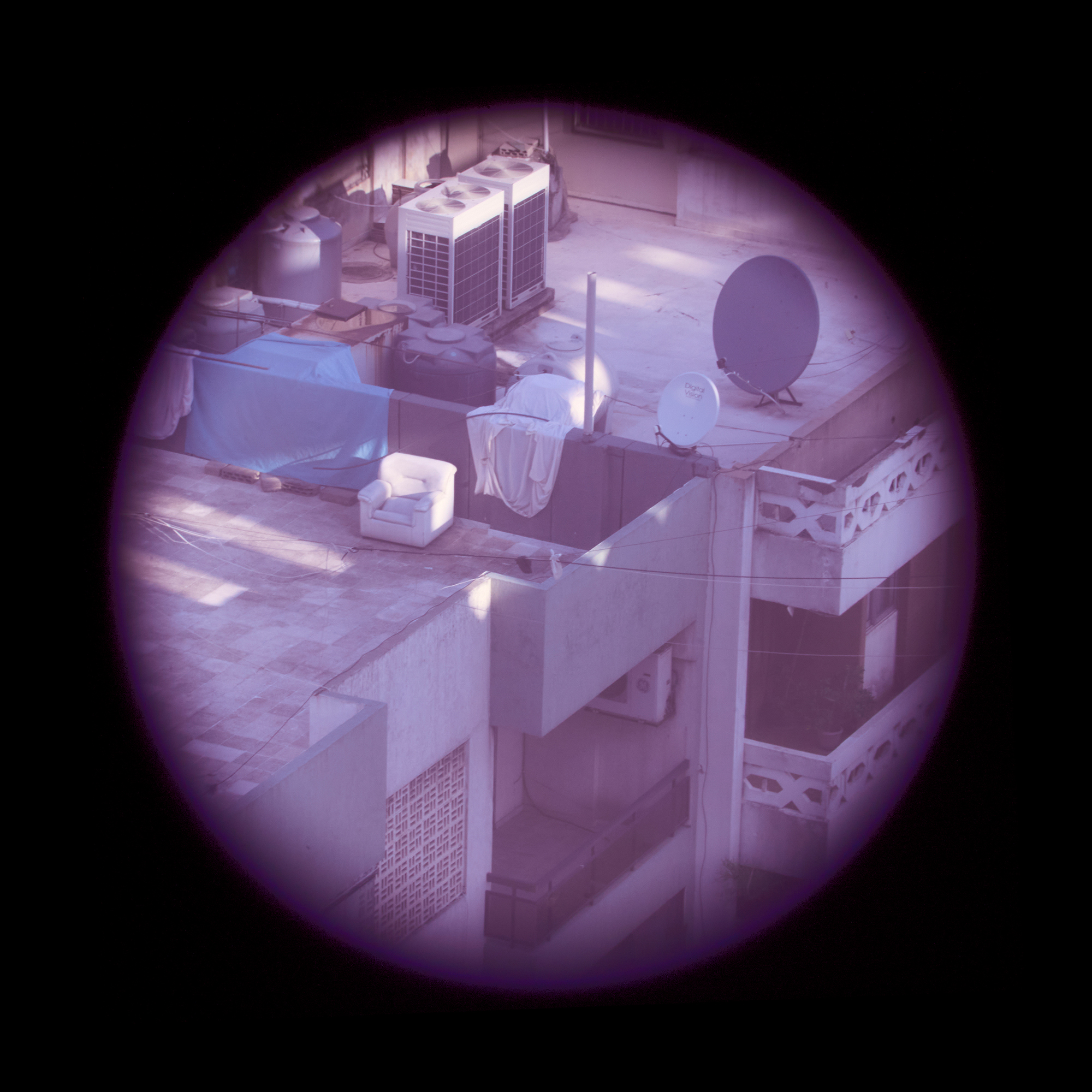
SCARRED
Lebanon occupied a destructed landscape for 15 years. In 1990, the civil war ended. Since then, the country has been rapidly changing and growing. Very few neighborhoods have bullet and explosion scars nowadays. Yet the overwhelming despair in which we Lebanese live is the randomness of the urban planning with no set guidelines were set ever since the war took an end. It has become such an uninspiring place to live. The poisonous stink of the nonfunctioning sectarian system is omnipresent however we turn. The chaotic nature of post-civil war architecture in Beirut has the war’s anxiety deeply stained on it.
Lebanon occupied a destructed landscape for 15 years. In 1990, the civil war ended. Since then, the country has been rapidly changing and growing. Very few neighborhoods have bullet and explosion scars nowadays. Yet the overwhelming despair in which we Lebanese live is the randomness of the urban planning with no set guidelines were set ever since the war took an end. It has become such an uninspiring place to live. The poisonous stink of the nonfunctioning sectarian system is omnipresent however we turn. The chaotic nature of post-civil war architecture in Beirut has the war’s anxiety deeply stained on it.
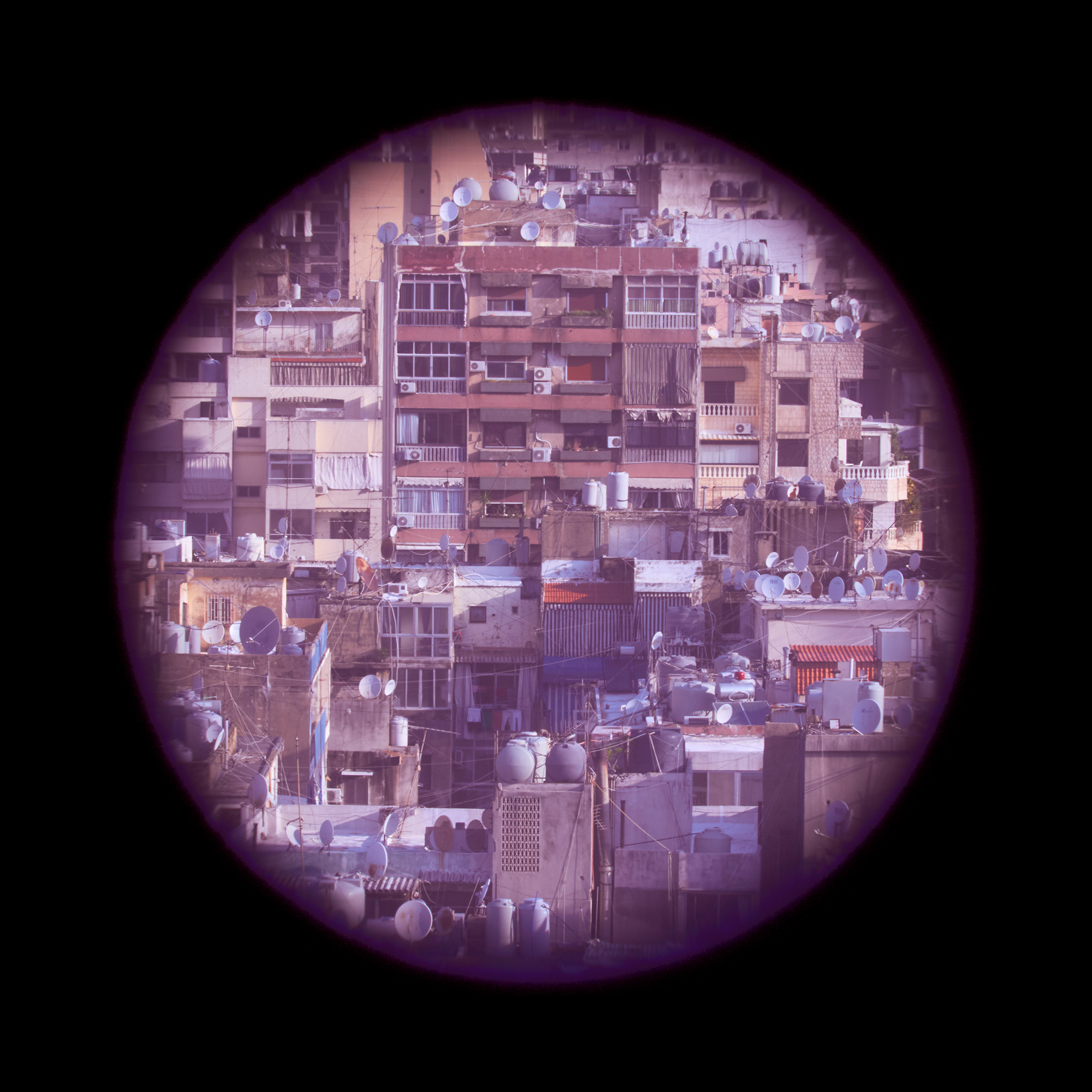
This photographic series offers a
perspective to the city’s landscape seen through a scarred window of the past, a
bullet hole, a keyhole where immoralist truths lie behind. Considering the
fraught topic of war and reconstruction, the circle acts as a gun scope or some
other surveillance device. By framing twice, the random repetitive mixture
of the city’s architectural identities, a layer of tension adds to the
photographs. The perspective from high up, looking down adds to the
element of surveillance and voyeurism, and it begs the question
about whether the viewer is hiding or hunting. The red hue adds another
layer of tension and many subliminal meanings, from blood to rage, to one of
the most visible in its respective spectrum, making the subject obvious,
in a hazy unreal reality.
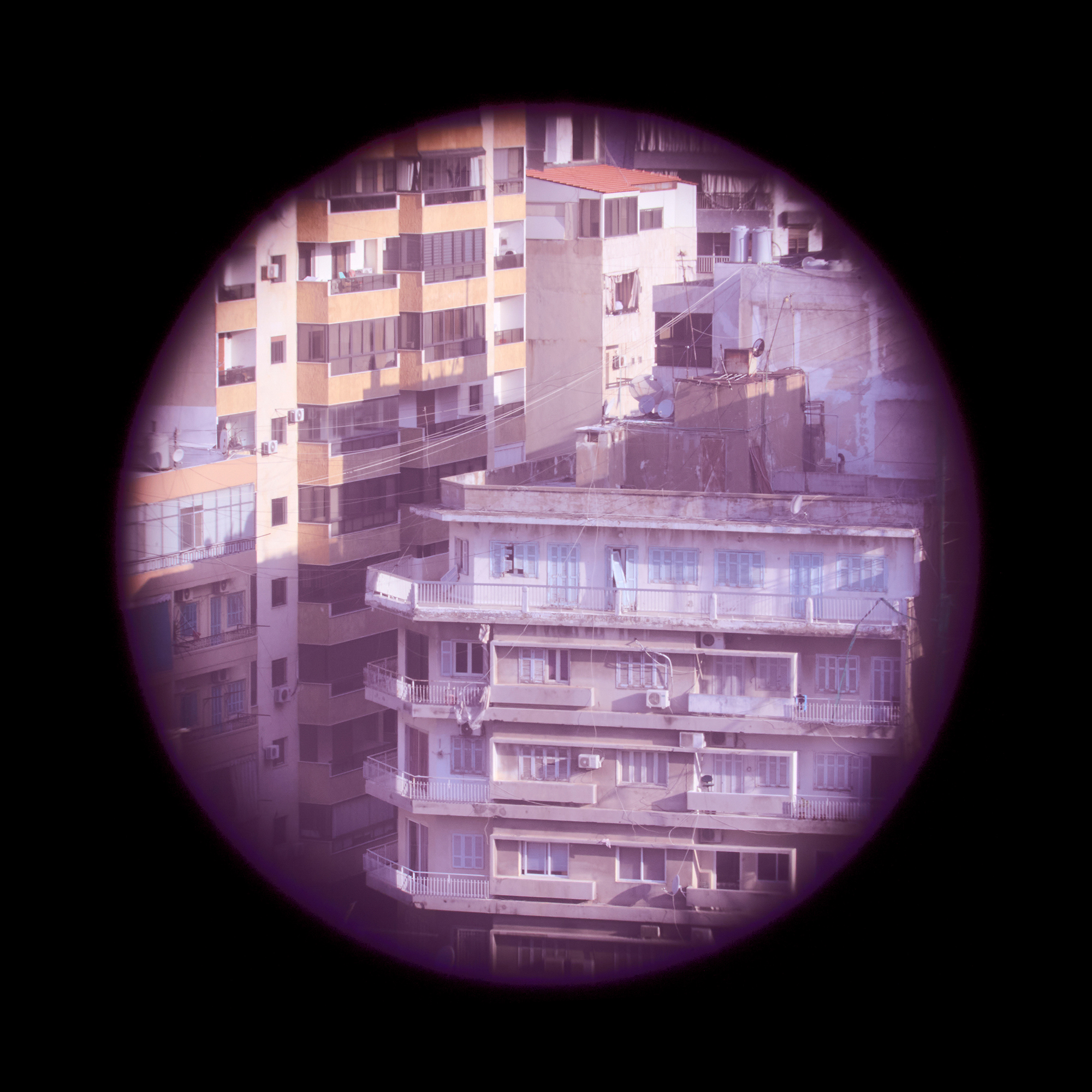
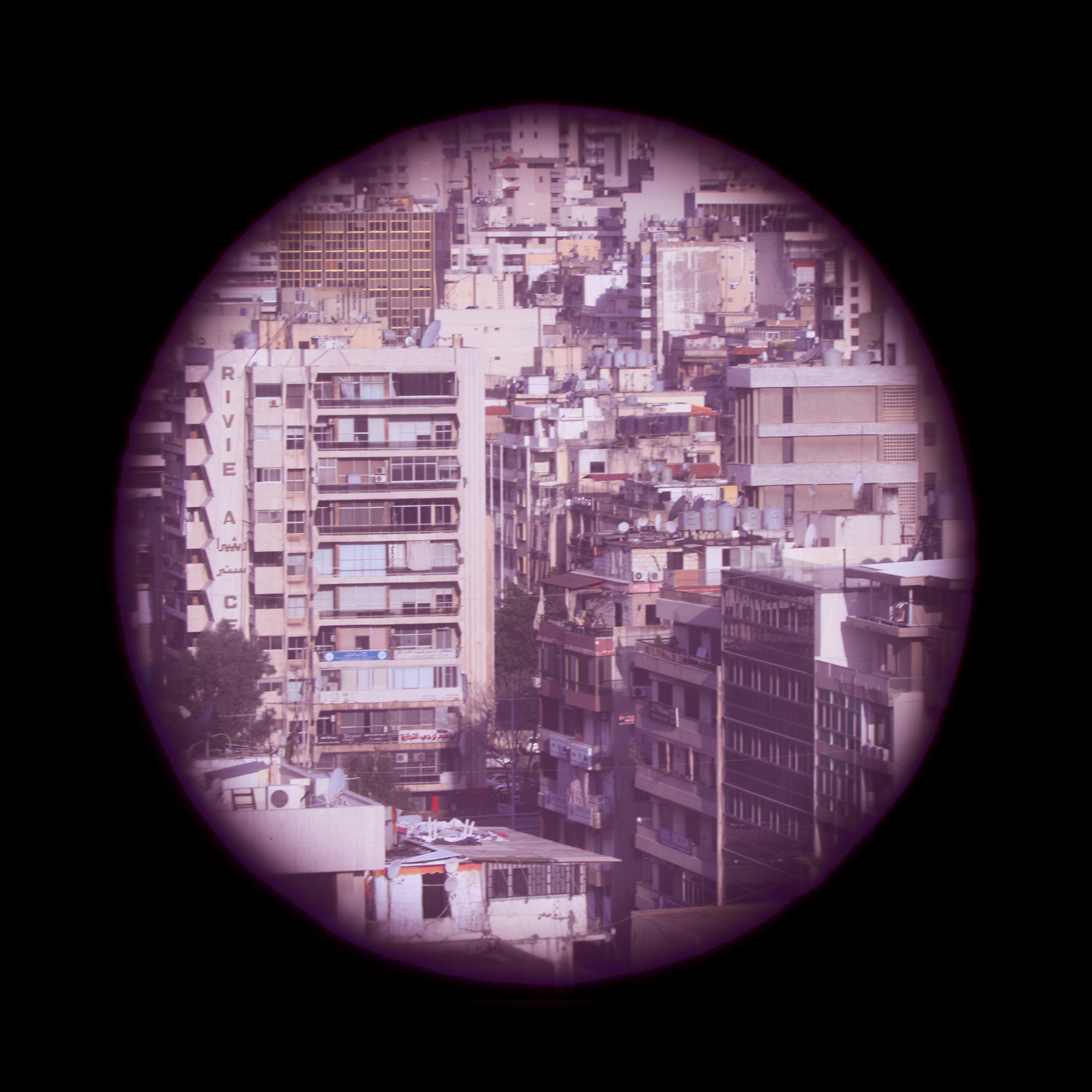
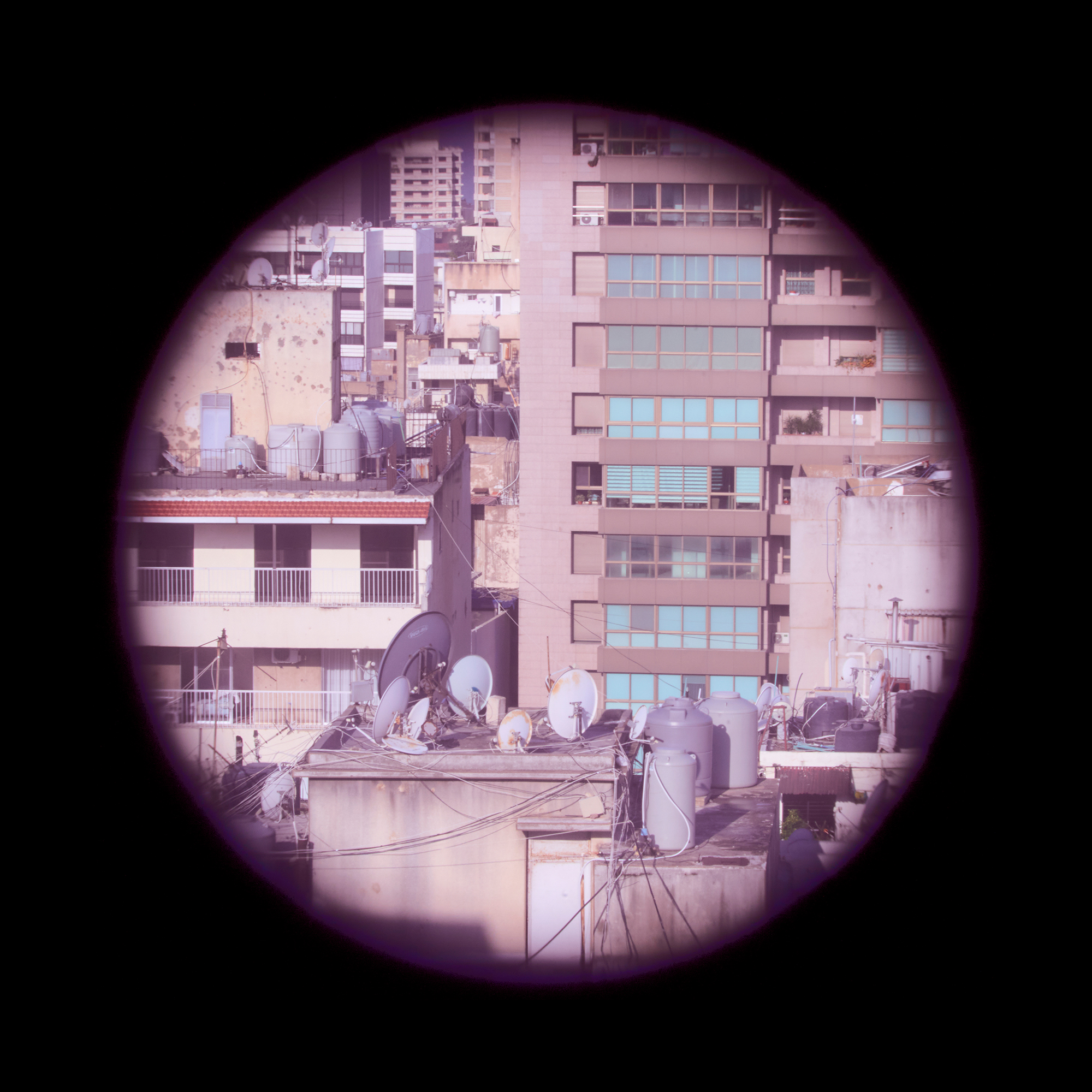
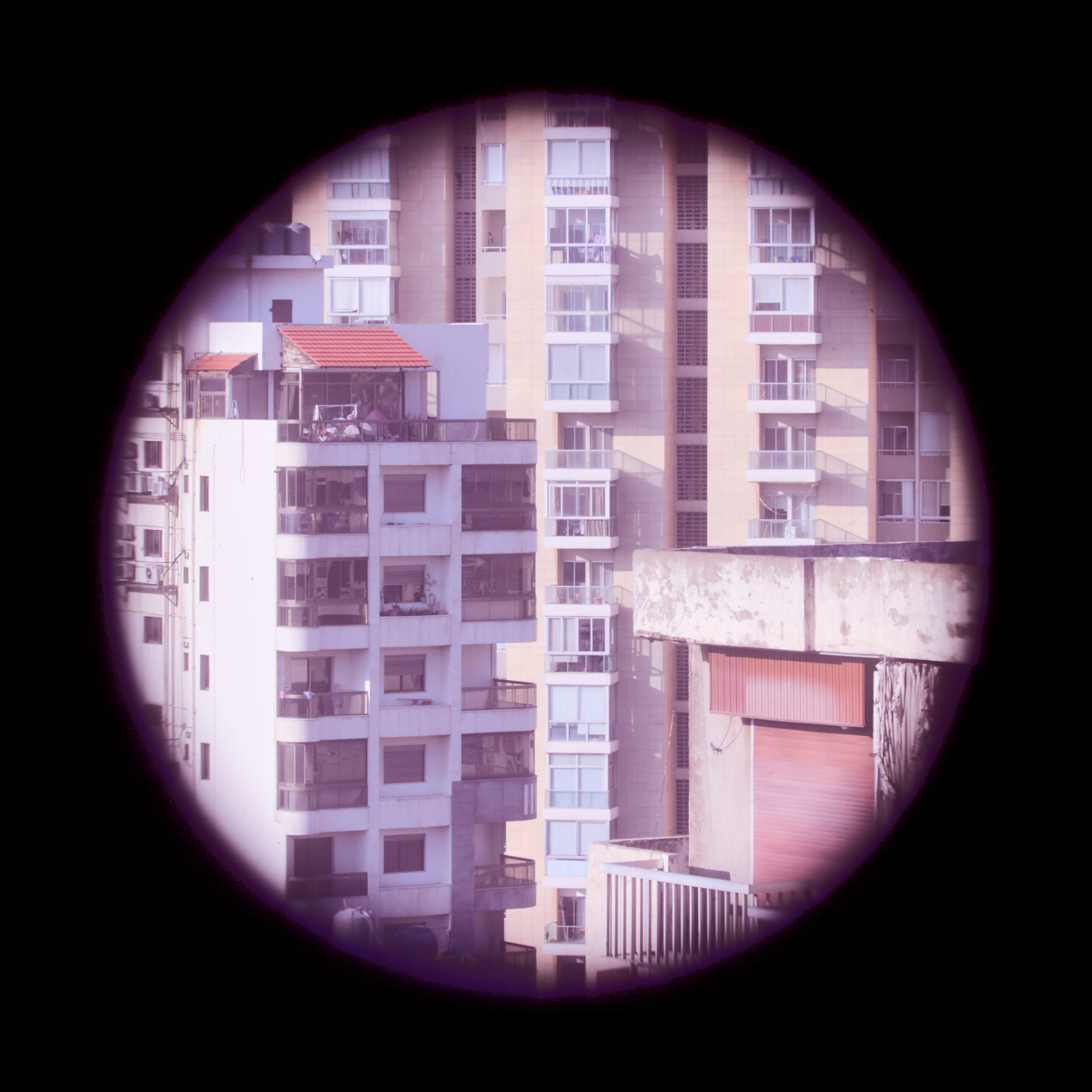
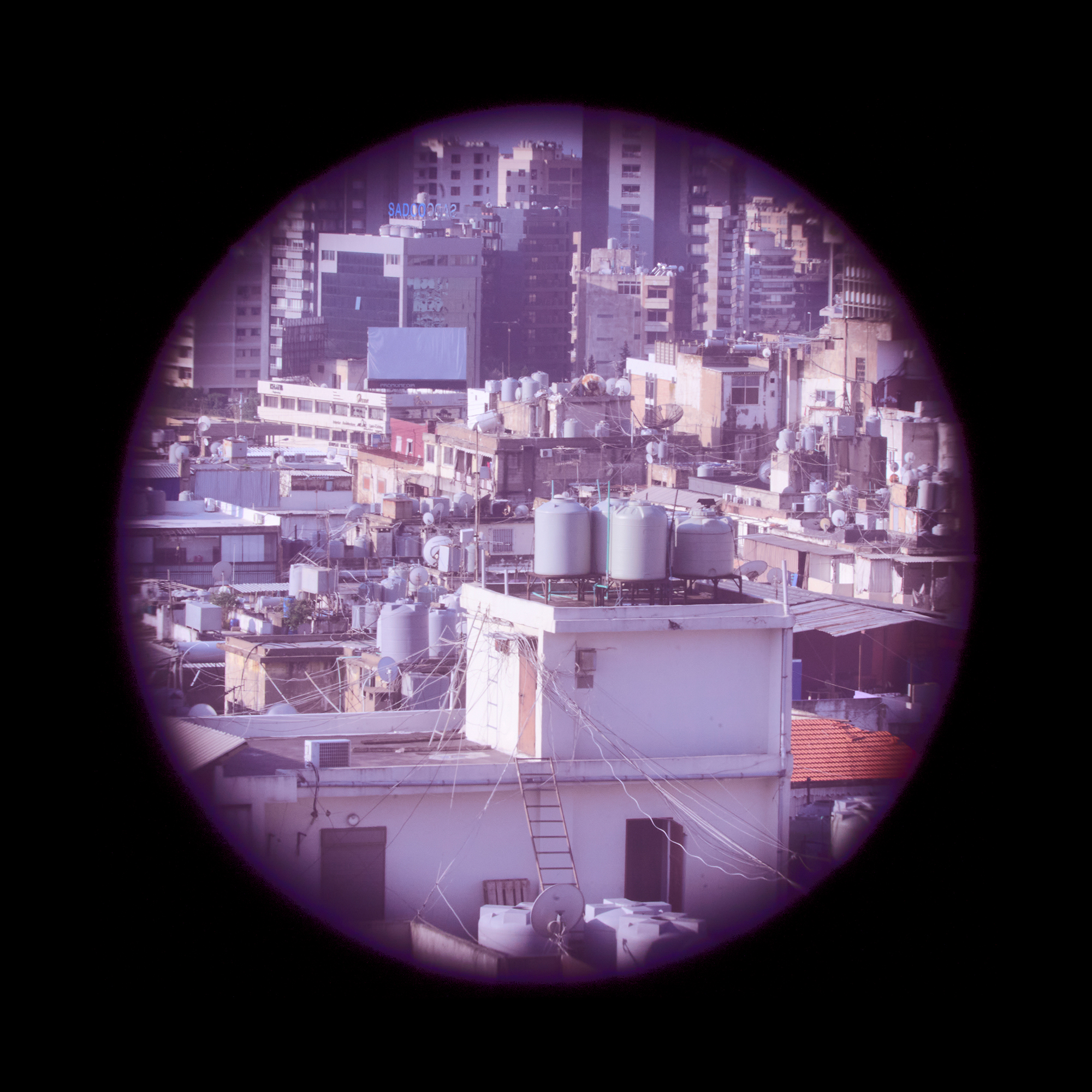
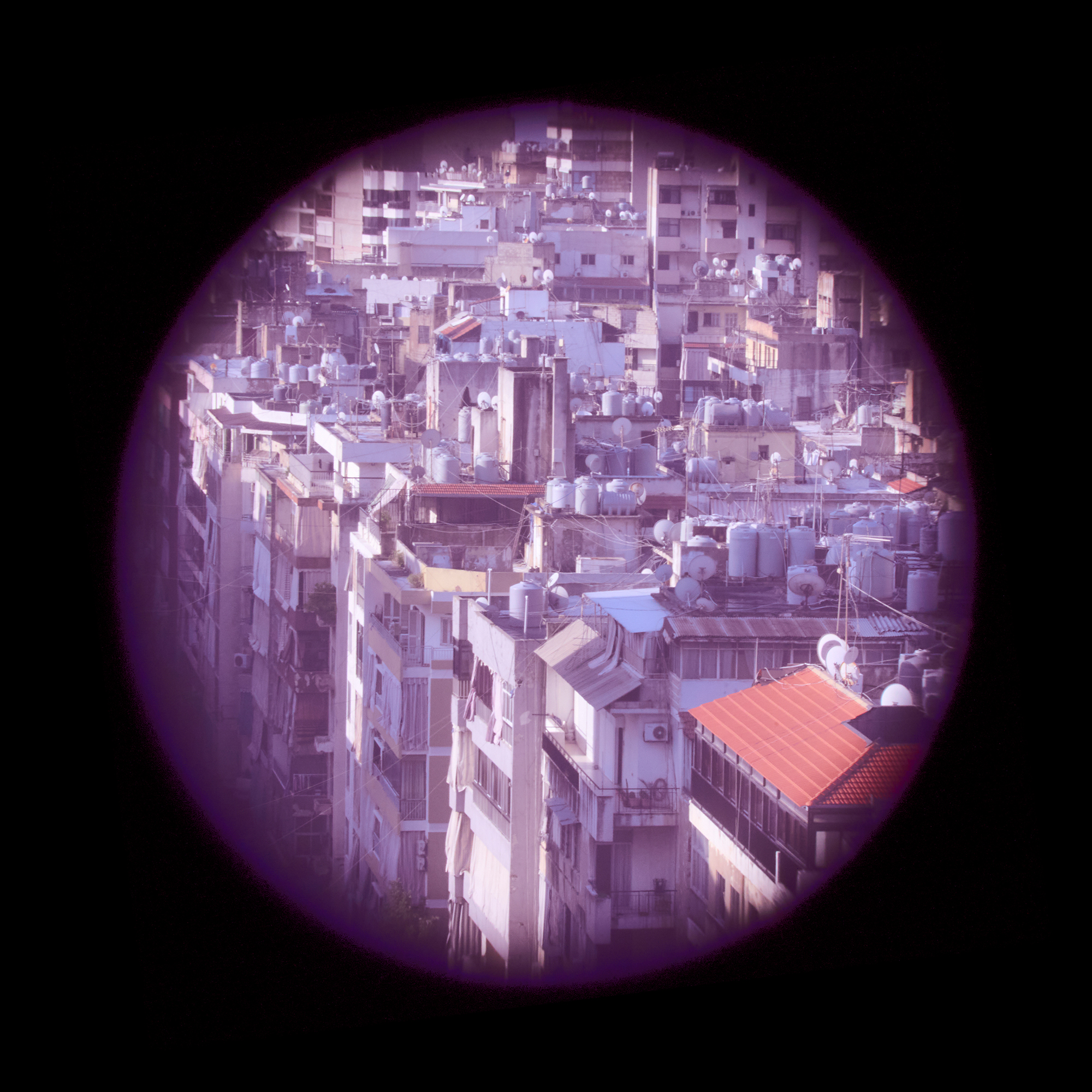
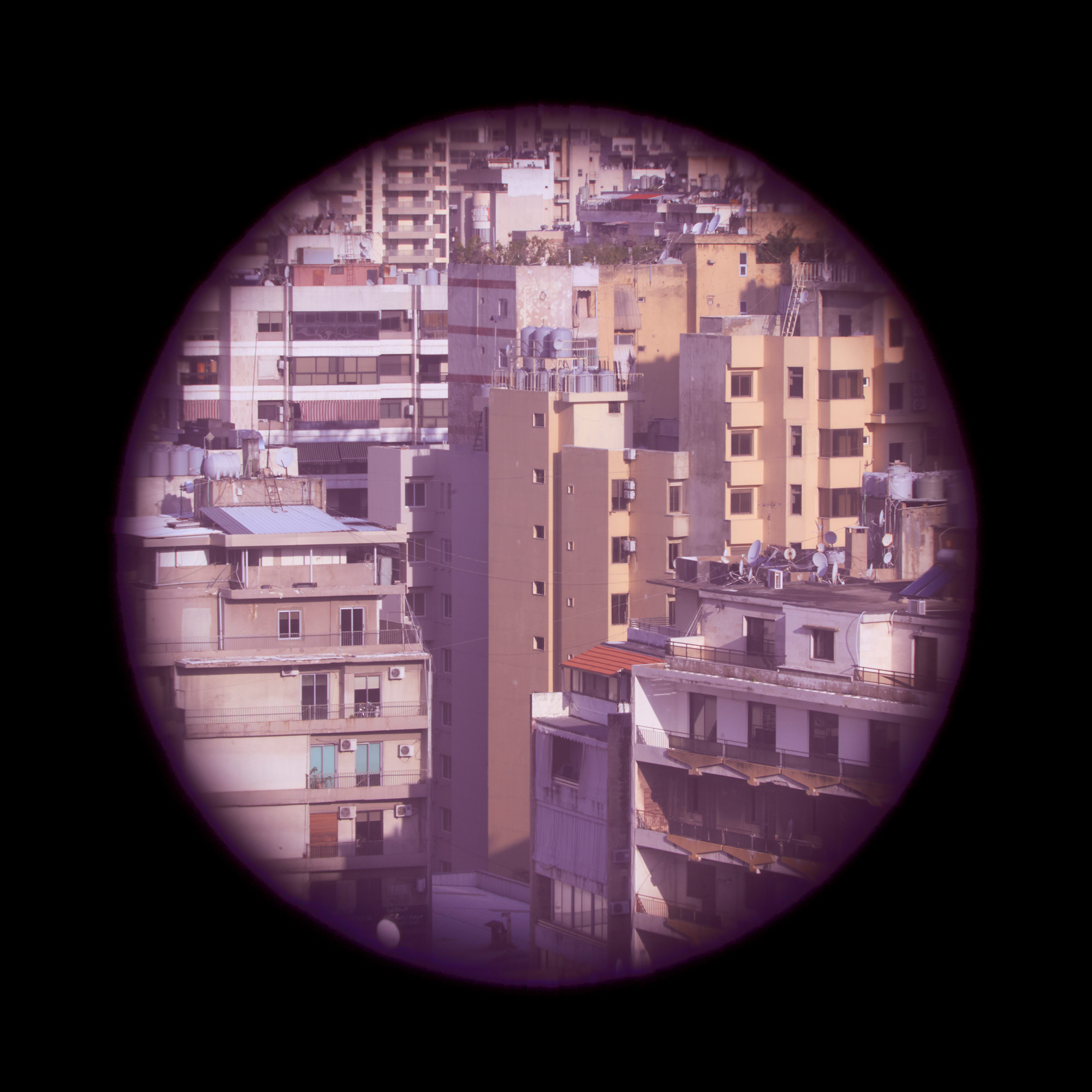
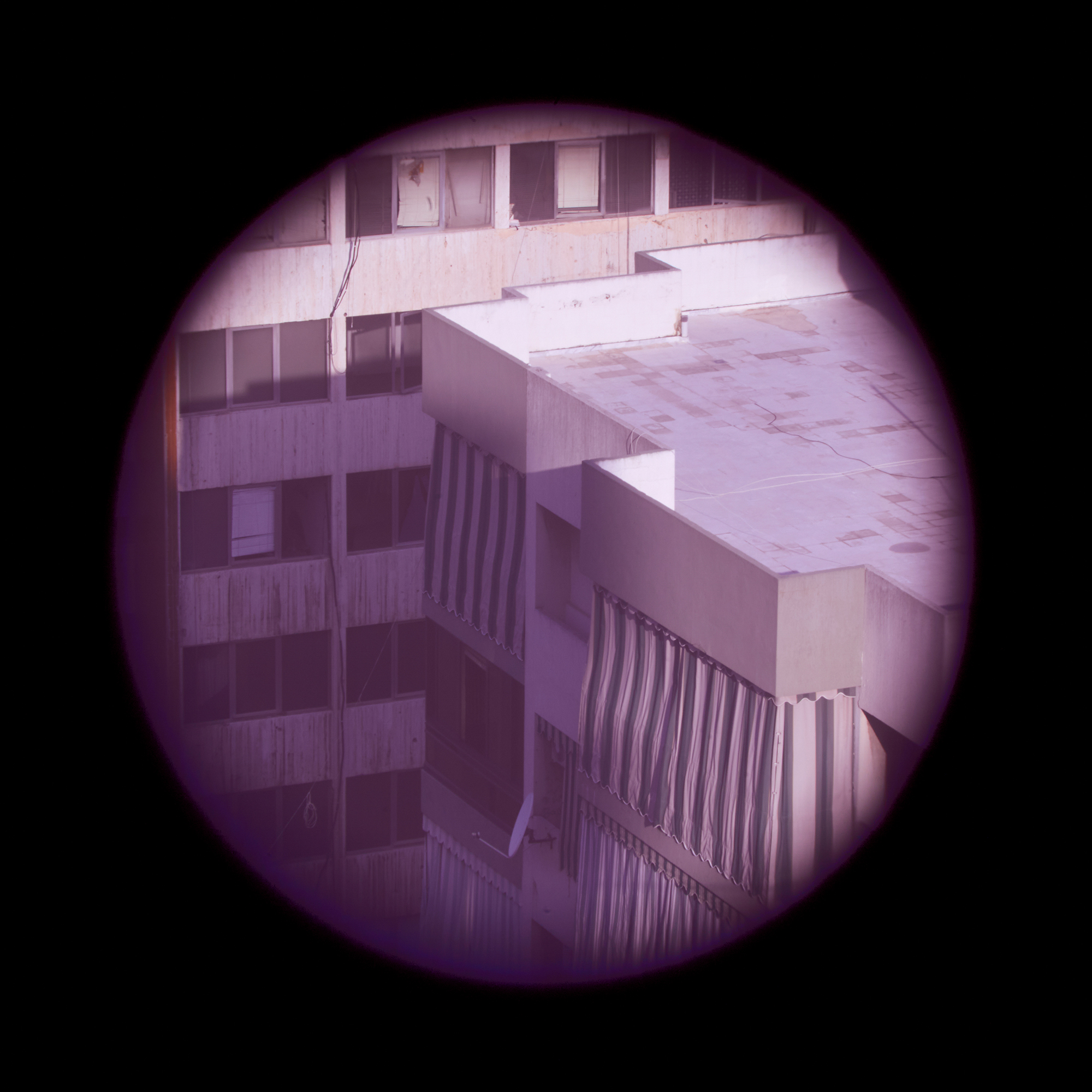
NB: None of the photographs presented were digitally manipulated. A hand-crafted filter was used in front of the lens.